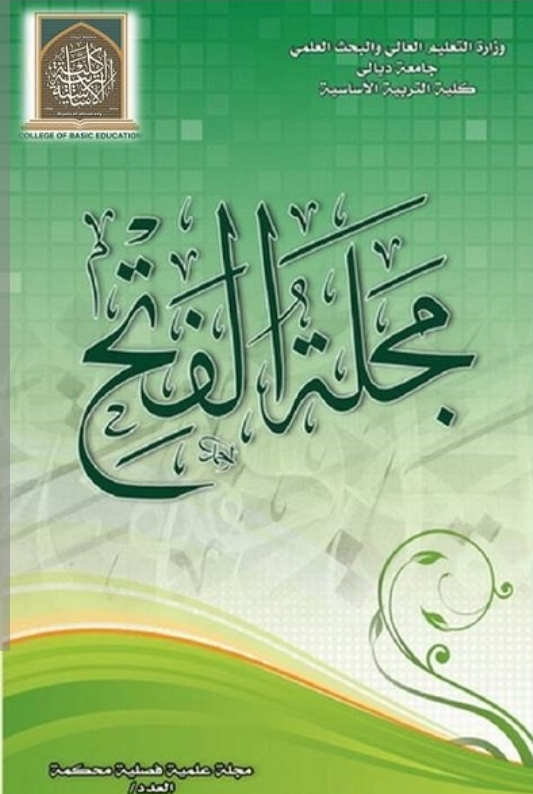The Effectiveness of Instrumental Help-seeking Strategy in Developing Elementary School Pupils' Problem-solving Skills in English Class
DOI:
https://doi.org/10.23813/FA/2012/16/1/01Keywords:
Instrumental help-seeking, problem-solving skills, English classAbstract
At the elementary school age, children are in need to seek help from more knowledgeable individual in order to cope with the difficulties in learning and to overcome challenges they may encounter in solving problems. Children, to be self-regulated learners, must be aware of the type of help they would seek, when to seek help and from whom to seek it. The help sought by pupils in classroom is of two types according to its achievement goals, instrumental and executive. The present study is designed to investigate the effectiveness of instrumental help-seeking strategy in developing elementary school pupils' problem-solving skills in English class, to investigate the difference between the experimental and control groups in their performance in the problem-solving test, to identify the difference between male and female pupils in their responses to help-seeking strategy, and to investigate the effectiveness of instrumental help-seeking strategy in English class from the point of view of English language teachers in elementary schools. The type of study followed was experimental in which help-seeking strategy was applied on a sample of (30) fifth grade elementary school pupils. Pre-test-post-test experiment has been used to calculate data. The experiment has lasted for (10) weeks and results of the study indicated that:1- help-seeking is a self-regulated strategy which has an effective role in developing problem-solving skills, particularly in elementary school age, 2-the participants who have taken part in the help-seeking strategy( the experimental group) show better performance in problem-solving test than those who have not participated in the experiment( the control group), 3- both male and female pupils in the experimental group have positively responded to help-seeking strategy, i.e. there was no significant difference between male and female pupils, and 4- English language teachers have shown positive attitudes towards involving help-seeking strategy in the classroom activities for its effective role. Finally some recommendations have been introduced to highlight the importance of strategic help-seeking in English classroom.
References
References
Anderman, M. (2008). Motivation for Achievement Possibilities for Teaching and Learning. New york: Taylor & Francis.
Aleven, V. ; Stahle, E. Schworm, S. ; Fischer, F. & Wallace, R.(2003). Help Seeking and Help Design in Interactive Learning Environments. Review of Educational Research. Vol. 73, No. 3, pp 277-320.
Alsagoff, L. ; McKay, S. ; Hu, G. & Renandya, W. (200120. Principles and Practices for Teaching English as an International Language. New York: Routledge.
Ary, D. ; Jacobs, L. ; Sorensen, C. & Razavich, A. (2010). Introduction to Research in Education. 3rd Ed. Belmont: Cenage Learning.
Azevedo, R. & Aleven, V. (2013). International Handbook of Metacognition and Learning Technologies. New York: Springer.
Bilal, D. & Beheshti, J. (2014). New Directions in Children's and Adolescents' Information Behavior. Binyley: Emerald.
Erben, T. ; Ban, R. & Castaneda, M. (2009). Teaching English Language Learners through Technology. New York: Routledge.
Flippo, R. (2014). Assessing Readers Qualitative Diagnosis and Interaction. 2nd Ed. New York: Routledge.
Karabenick, S.(1998). Strategic Help Seeking Implications for Learning and Teaching. Mahwah: Lawrence Erlbaum Associates.
Karabenick, S. & Newman, R. (2006). Help Seeking in Academic Settings, Goals, Groups, and Context. New Jersey: Routledge.
Lazarwitz, R. & Miller, N. (1992). Interaction in Cooperative Groups: the Theoretical Anatomy of Group Learning. Cambridge: Cambridge University press.
Le Gall, N.(1986). Help-Seeking Behavior in Learning. Review of Research in Education. Vol. 12, pp55-90, American Educational Research Association, Washington, DC.
Newman, R. (2002). How Self-Regulated Learners Cope with Academic Difficulty: the Role of Adaptive Help Seeking. Vol.41,No.2,College of Education, the Ohio State University.
Nicholas, L. (2008). Introduction to Psychology. 2nd Ed. Lansdowne: UCT Press.
Pena-Ayala, A. (2015). Metacognition: Fundaments, Applications and Trends. New York: Springer.
Shunk, D. & Zimmerman, B. (2008). Motivation and Self-regulated Learning: Theory, Research and Application. New York; Taylor & Frances.
Shunk, D. & Zimmerman, B. (2011). Handbook of Self-Regulation of Learning and Performance. New York: Routledge.
Stough, C. ; Saklofske, D. & Parker, J. (2009).Assessing Emotional Intelligence. Theory, Research and Applications. New York: Springer.
Velliotis, E. (2008). Classroom Culture and Dynamics. New York: Nova Science Publisher Inc.
White, M. & DiBenedetto, M. (2015). Self-regulation and the Common Core: Application to ELA Standards. New York: Routledge.
Wigfield,A. & Eccles, J. (2002). Development of Achievement Motivation. California: Academic Press.
Wosnitza, M. ; Karabenick, S. ; Efklides, A. & Ninniger, P. (2009). Contemporary Motivation Research from Global to Local Perspective. Cambridge: Hogerefe & Huber.
Downloads
Published
How to Cite
Issue
Section
License
Copyright (c) 2023 https://creativecommons.org/licenses/by/4.0/

This work is licensed under a Creative Commons Attribution 4.0 International License.
حقوق النشر والترخيص
تطبق مجلة الفتح للبحوث التربوية والنفسية ترخيص CC BY (ترخيص Creative Commons Attribution 4.0 International). يسمح هذا الترخيص للمؤلفين بالاحتفاظ بملكية حقوق الطبع والنشر لأوراقهم. لكن هذا الترخيص يسمح لأي مستخدم بتنزيل المقالة وطباعتها واستخراجها وإعادة استخدامها وأرشفتها وتوزيعها ، طالما تم منح الائتمان المناسب للمؤلفين ومصدر العمل. يضمن الترخيص أن المقالة ستكون متاحة على نطاق واسع بقدر الإمكان وأن المقالة يمكن تضمينها في أي أرشيف علمي.
لمزيد من المعلومات، يرجى متابعة الرابط: https://creativecommons.org/licenses/by/4.0/.



